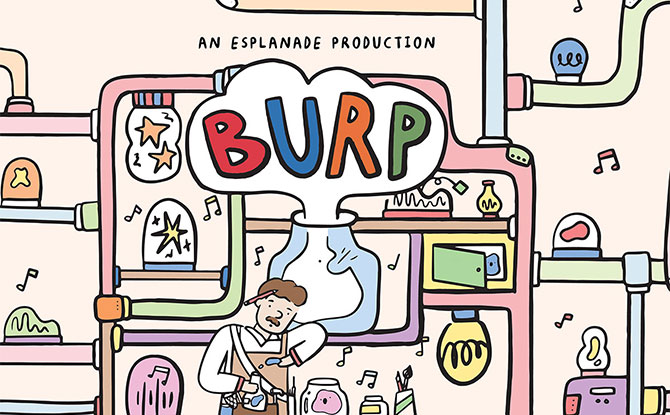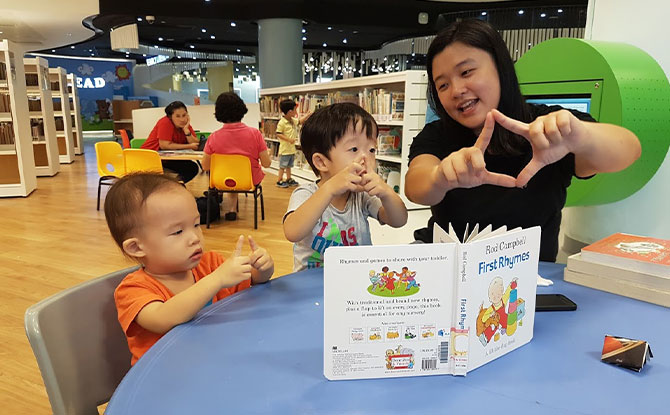
Eager to raise a bookworm? We have tips from an Educational Therapist from Dyslexia Association of Singapore on encouraging your child to read confidently. And, in fact, you can start for an early age, even once the child is born!
How to Grow the Love for Reading in Children
We speak to Ms Weng Yiyao, Lead Educational Therapist from Dyslexia Association of Singapore, to find out more about growing the love for reading in children and how to overcome challenges in reading.
Little Day Out: When is a baby or toddler ready to “read”?
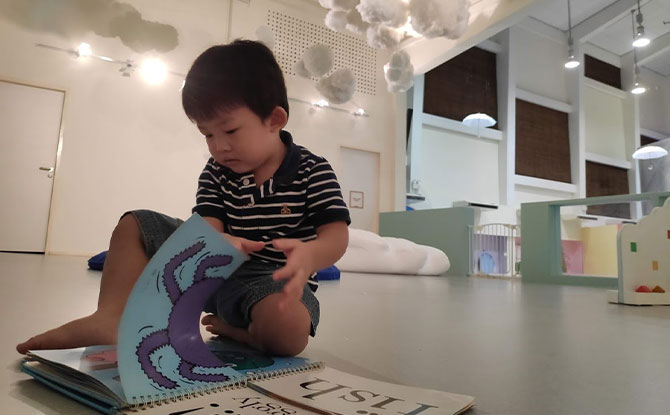
Ms Weng: It is never too early to start reading! You can start reading to your child as soon as he or she is born. Reading to babies or toddlers exposes them to rhythm, tone, sounds and words. It also develops their language skills, such as increasing their vocabulary and familiarity with different sentence structures. Their general knowledge and understanding will also grow in the process. It also builds listening skills which is a cornerstone for the development of speaking, reading and writing skills.
BE PSLE-READY: Join Expert Educators for Revision Boosters to Empower P6 Students
BURP: Join the Sound Collector on a Whimsical Chase at Esplanade – Theatres on the Bay
WEEKEND IDEAS: Get Inspirational Ideas of Things to Do
More importantly, when you read to your child, he or she will get your full attention. It is a great and fun way for you to bond with your child!
How do we encourage a child to read?
Make reading an enjoyable activity!
A good way to start is to allow your child to read a book of his or her interest. You could select two books and get your child to pick one. On some days, read leisurely to your child while on others, do paired reading with him or her. Let’s find out how you can select books for reading!
What’s the best way to choose a good book for a child?
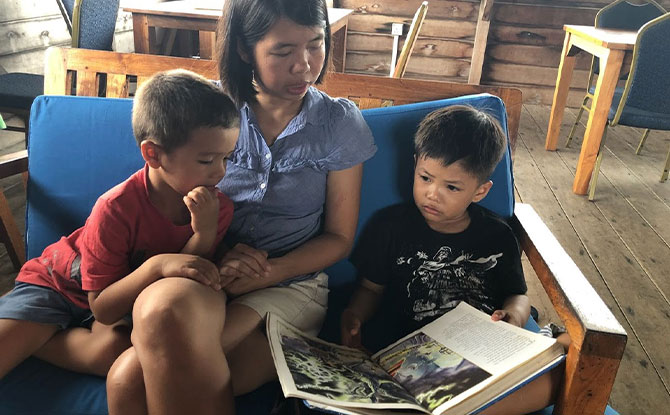
What works for one child may not work for another. As parents, you know your children best. Here are just some tips to guide you along:
0 to 1 year: Newborns are still developing their vision, so select books with high contrast (black and white). Gradually introduce tactile books with flaps, mirrors, tags and textures that allow babies to explore with their hands and mouth. As babies at this age are still learning to control their strength, board books are a great alternative as they can withstand wear and tear from babies’ chewing and rough handling. These books can contain pictures and repetitive language.
1 to 3 years: Children of this age group enjoy books with single words, pictures and simple sentences; as well as those with repetition. At this stage, board books are still relevant as they learn how to flip the pages. Lift the flaps, peek-a-boos, pop-ups and tactile books are a great place to start. You could also introduce concept books that explain things like numbers, colours or time; or select books that are relatable to their day-to-day experiences to help them make sense of their world. These could include topics such as daily routines and thematic themes such as animals and transportation.
3 years and above: Stories with repetition continue to interest children of this age. Find books with a simple storyline and clear presentation of illustration and text. If your child is ready, start exposing him or her to early levelled readers. Remember the Peter and Jane series from Ladybird Books? Yup, we are talking about books that start with simple short words and short sentences and gradually advance to longer words and sentences.
5 to 7 years: As your child advances in his or her reading skills, it is a great time to start exploring more advanced levelled readers or even chaptered books.
When should we be concerned if a child is not interested in reading?
Before raising any red flags, it is useful to find out the reason behind your child’s disinterest in reading. Could there be too many words on the page or a lack of illustrations to engage your child? Could the story be too long for them or are there too many difficult words in the book?
Conversely, children could also lose their interest if the plot is too simple for them. Remember it is important to cater to your child’s interest to encourage reading! We assure you there are definitely books out there that will capture your child’s interest and attention!
What are signs to look out for if my child has issues reading?
The amount of exposure to reading must be considered first, before raising red flags that your child has difficulties in reading. These could include:
- Difficulties with letter sounds, for example, /a/ (like an apple) for the letter A
- Having trouble tracking words from one sentence to another
- Problem with identifying rhymes while reading
- Finding it hard to blend letter sounds together to read words
- Inability to recognise common high-frequency words such as ‘the’, ‘and’, ‘you’ and ‘was’
What kind of professional help can we seek if a child faces difficulty in reading?
DAS regularly conducts free preschool screening to identify pre-schoolers in K1 and K2 with learning difficulties that could include challenges with reading, spelling and/or writing.
Our Educational Therapists will administer a short screening to identify your child’s literacy profile and thereafter provide advice based on your child’s literacy needs.
Our upcoming screening will be held on 16 March 2021 (Tuesday) at DAS Jurong Point Learning Centre. For other dates, you could refer to our website. You can also gain more expert advice at the annual Preschool Seminar organised by DAS on 17 March. More details here.
Raising A Confident Reader Takes Commitment
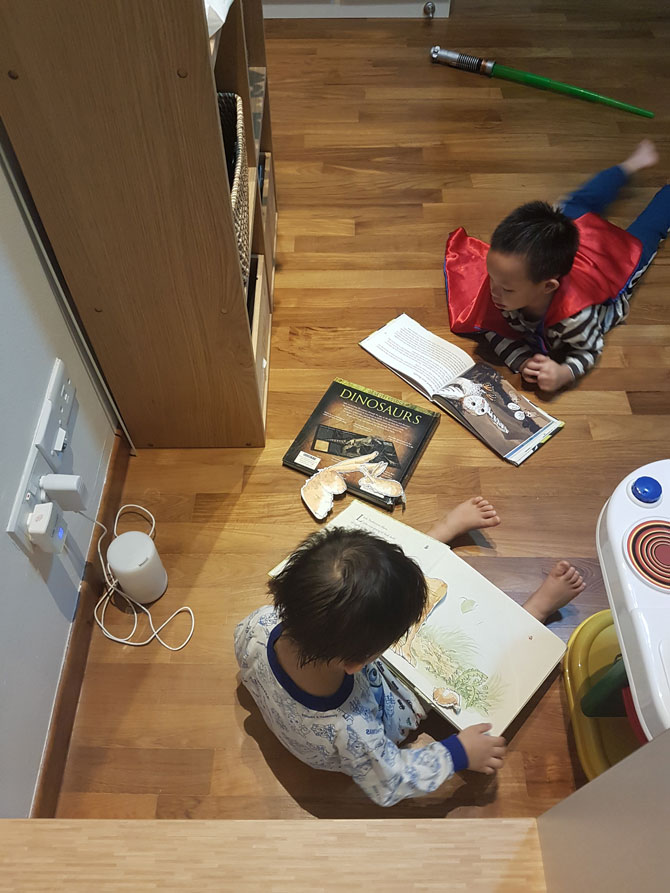
Thank you, Yiyao, for the precious tips. The important takeaway for parents and caregivers is that raising a confident reader takes commitment. Read to them as early as possible, keep trying different books to grow their interest. Personally, I love library time and choosing books for my kids is a therapeutic ritual. You might want to try it too! May we raise readers for life!




